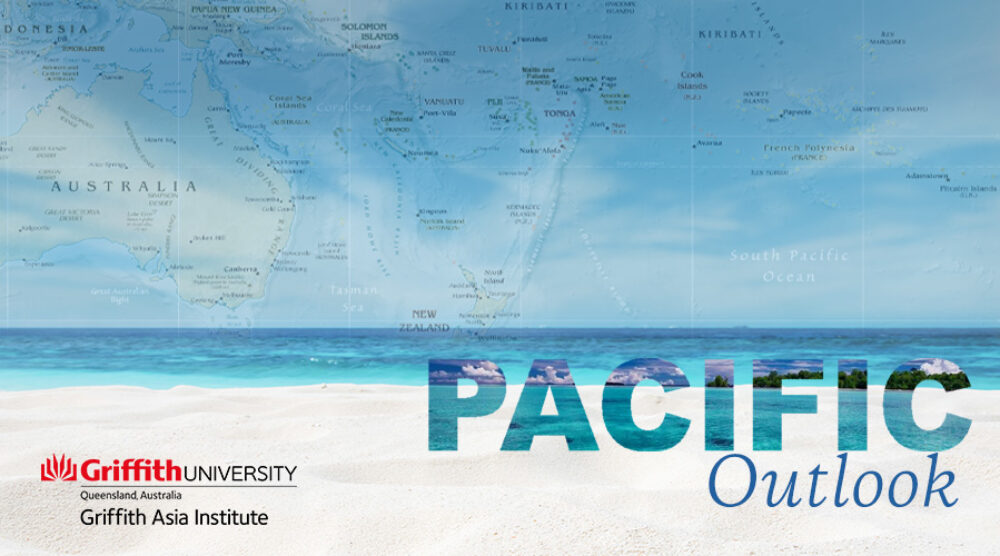Strong responses to gender-based violence in PNG
The outcry in PNG and beyond that arose from recent high-profile cases of gender-based violence has continued. For some, there is a feeling of déjà vu as this is not the first time there have been calls for government leadership and action to address this problem.
However, one significant aspect of the response this time is the number of men who have come forward to call for an end to violence against women and girls. A protest march held recently in Port Moresby was followed by a candle-light vigil. The Prime Minister, James Marape, was in attendance. The vigil was organised by a group of prominent Papua New Guinean men, under the newly formed “PNG Man Up” banner.
Meanwhile, the Secretary-General of the Pacific Islands Forum, Dame Meg Taylor, has written an open letter “as a daughter of this Nation” calling for “a commitment towards real societal and behavioural change”.
Vanuatu political parties meet with Chinese Communist Party
In Vanuatu, members of three of the political parties that make up the governing coalition took part in an online meeting with members of the Chinese Communist Party. The Prime Minister, Bob Loughman, and the Deputy Prime Minister, Ishmael Kalsakau, took part in this meeting along with other senior members of the government.
The theme of the meeting was “Cooperation against COVID19 and working together for development”. The meeting was chaired by Song Tao. He is China’s Minister of the International Department of the Chinese Communist Party.
The Vanuatu Daily Post reports that all participants noted the strength of the relationship between Vanuatu and China. There was an expectation that the countries would work together to combat Covid-19 and assist economic recovery. Participants received a briefing on the current situation as regards Covid-19 in Vanuatu from Len Tarivonda, the Director General of the Ministry of Health.
Further developments in the saga at the University of the South Pacific
The saga around allegations of mismanagement at the University of the South Pacific continues.
The new Chancellor of the university is President Lionel Aingimea of Nauru. On taking up the position he stated that improved governance within the institution was a priority. He takes up this position as the current Vice-Chancellor, Pal Ahluwalia, is facing allegations of mismanagement. He claims he has been ‘thrown under the bus’ after bringing to light alleged misconduct by senior members of the institution including the former Vice-Chancellor, Rajesh Chandra.
The Council met in an all-day session on July 3.
Despite calls for the audit report into alleged mismanagement by Chandra and senior members of the University to be made public, it will be released only to members of Council.
Solomon Islands struggles to provide relief to people affected by TC Harold
Even though it is three months since Tropical Cyclone Harold hit Solomon Islands, some are reportedly still waiting for relief from the government.
People on the remote Weathercoast of Makira island were badly hit by the cyclone. Gardens and crops were destroyed by the storm, leaving people at risk of running out of food. Getting assistance to the communities in that area is particularly challenging as they can only be reached by boat.
The Solomon Star reports that no reports of hardship have been received by the provincial authorities. The responsibility for providing disaster relief rests with the national government through the National Disaster Management Office.
The director has advised local media that relief distribution is now underway. He has also said that his office was struggling to deal with the aftermath of the cyclone as well as Covid-19.
Taiwan supports training attachments for officials at regional tourism organisation
Officials from the ‘Small Island States’ grouping within the Pacific Islands Forum will continue to benefit from training attachments to key regional organisations.
The scheme has been in operation since 2016 and is supported by the government of Taiwan Funding is now available for a further three years of activities. It provides for officials from the region’s smallest states (Cook Islands, Federated States of Micronesia, Kiribati, Nauru, Niue, Palau, Republic of the Marshall Islands and Tuvalu) to spend time working within key regional organisations. This allows for them to develop tailored approaches to implementing regional policy at the national level.
The South Pacific Tourism Organisation has now become a part of this scheme. Other regional agencies that take part include the Pacific Power Association, the Forum Fisheries Agency and the Secretariat for the Pacific Community.
Tess Newton Cain is an Adjunct Associate Professor at the Griffith Asia Institute and project lead of the Pacific Hub.








